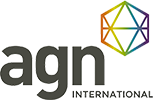SBA Loan Provisions of the CARES Act

On March 27, 2020 President Trump signed the Coronavirus Aid, Relief and Economic Security (CARES) Act, an unprecedented $2 trillion economic stimulus bill. The “Paycheck Protection Program” section of the act contains several provisions designed to provide economic relief to the small business community through the Small Business Administration (SBA) direct remittance of loan payments on existing SBA loans as well as the creation of a new loan program that includes a loan forgiveness element.
SBA loan payments
The act provides for the SBA to pay all principal, interest and fees on all existing SBA loan products including 7(a), community advantage, 504 and microloan programs impacted by the coronavirus. The payments will be provided for a period of 6 months, presumably starting with the March 27, 2020 signing date of the act.
Paycheck Protection Program loans
The act provides for an expansion of the SBA 7(a) loan program, providing for loans of up to $10 million. To qualify for the loan the borrower must have less than 500 employees. Self-employed individuals and non-profits are also eligible.
The maximum loan amount is calculated as follows:
The lesser of $10,000,000 or:
Average total monthly payments for payroll costs for the previous year
X 2.5
Loan Amount
The loan will be forgiven to the extent the borrower incurred payroll, mortgage payments, rent and utility expenses during the “covered period”. The covered period is defined as February 15, 2020 to June 30, 2020. The forgiveness amount will be reduced to the extent that total number of full-time equivalent employees is reduced during the covered period. The forgiveness calculation includes an election to measure the decline in full time equivalents based on the current year or as compared to the prior year (February 15, 2019 to June 30, 2019). Additionally, the loan forgiveness will be non-taxable.
The interest rate on the loans will be 4%. The loans will be 100% guaranteed by the U.S. government and will be non-recourse, without a requirement for personal guarantees. It is highly anticipated that these loans will create an incredible amount of demand within the banking community. The loans will be offered directly through commercial banks and non-profit Certified Development Companies (CDC). The SBA has committed to provide administrative guidance for how the loan program will be implemented within 7 – 10 days of the law passing. Commercial banks and CDC’s with Preferred Lending Partner (PLP) status will clearly have a competitive advantage with approving these loans as their PLP status allows them to approve the loans internally without the requirement to interface with the SBA. Non-PLP lenders will still need to have their loans approved directly by the SBA.
As we wait for the SBA to issue their rules and procedures, we advise those parties interested in applying for a loan to gather the required payroll information into an easily transferrable Excel based format. We would also recommend assembling both the monthly wage information as reported in their accounting system as well as an accumulation of the wage totals as reported on their federal payroll tax returns (Forms 941). It’s likely that your lender will be required to compare your wage data to the totals in the IRS database and confirm that your company is not delinquent in their payroll tax remittances.
Borrowers are permitted to also participate in the SBA Economic Injury Disaster Loan (EIDL) program as long as there is no duplication in the use of funds.
Please contact us if we can answer any of your questions or help you get the loan process started.
Dan Prendergast is a Vice President at Meaden & Moore. He offers over two decades of experience working with closely held and entrepreneurial companies.






